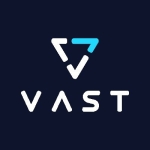NetApp has enabled us to transition from legacy configurations and continue to do some of the same things we did before implementing NetApp storage. It helps us with simple things, like allowing us to grow a file system immediately. Customers can do their own self-restores.
I've combined other NetApp systems into one of our newer platforms, taking other file-sharing solutions native to Windows or Mac and creating file shares, yielding a better return on our investment. At the same time, we are providing better resources and more efficient channels for files.
When we had another vendor, backups were not done efficiently, so we lost critical data. That's why we went with this solution. It has required us to think differently about how we will implement it. Anything we do needs some aspect of AI involved to help us because we don't have enough resources in terms of money or labor power.
We have considered using WEKA.io or S3, but we have a solid history with NetApp. We have it in multiple layers, so we can't make those shifts without interrupting many business systems. Ease of use is one of those critical things. We're familiar with it. Making those changes is too much of a lift and would be costly.
When you evaluate what it costs to bring in a new vendor or platform versus what you've already invested in that app, it makes that decision easy. Right now, I plan to start doing some more data tiering. We bought a storage grid we use for backup but want to use for data tiering. S3 will be a protocol we can use for clients needing to access things from various platforms.
We want to add more. We want to build out our source grid infrastructure because that can allow us to do data tiering, backups, and another protocol to enable users to use data more efficiently. It's also secure, and all those things are part of our effort to be more efficient. You can't have one without the other.
Our organization recently underwent a major upgrade, and we're expecting exponential data growth over the next few years. We must embrace what we currently have and the building blocks to grow and understand the demand. We have to do that seamlessly, but we can't do it with the same resources we have now.
We could not consolidate resources between NFS and Sys services without the NetApp appliance or something like it.
I rate NetApp 10 out of 10.















